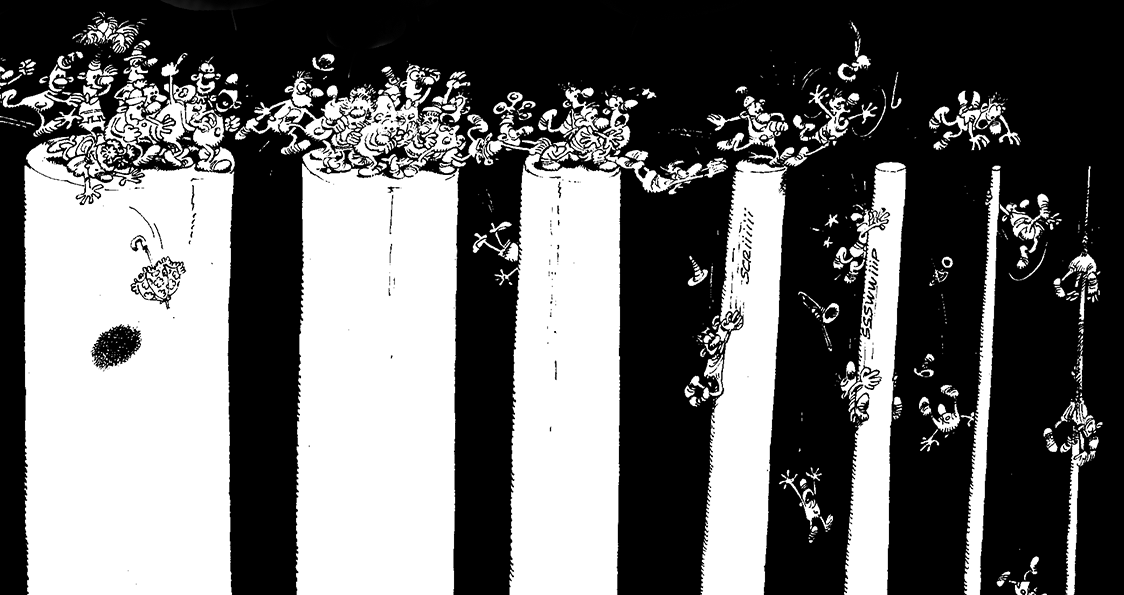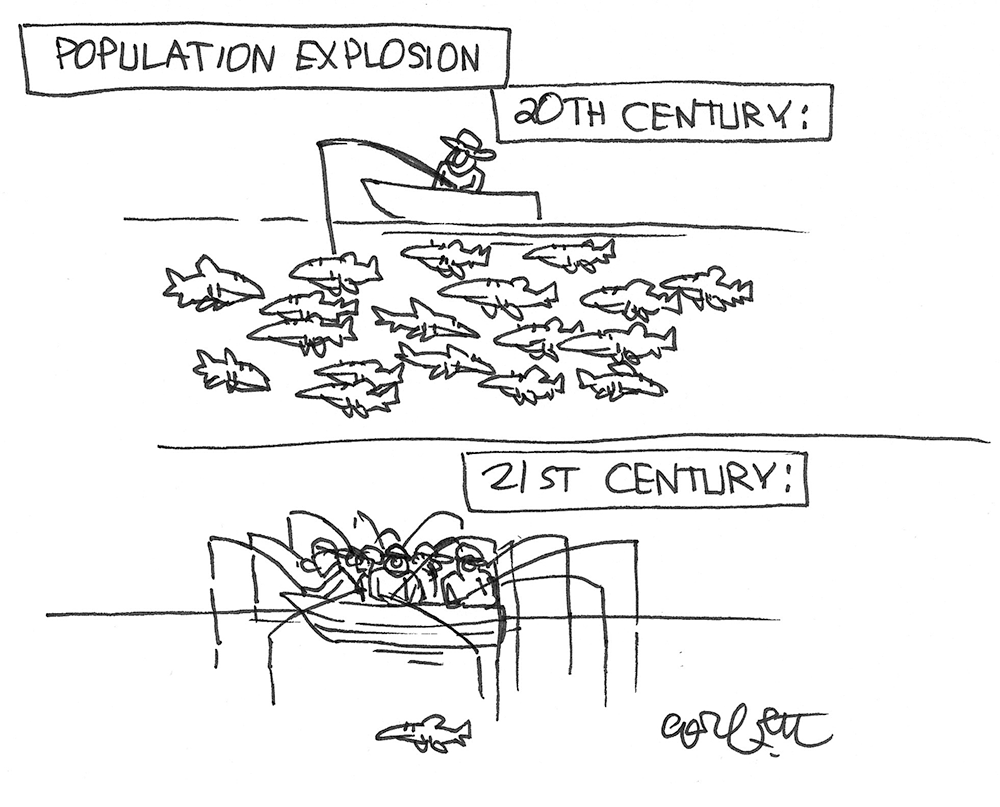aftermath
overpopulation

Source: Zwartkijken by André Franquin; jbl
The dangers of overpopulation cannot be exaggerated, because it amplifies all other problems. Being human-made, it lacks the checks and balances of the natural world to prevent its occurrence in this extreme form.
Overpopulation has become a scientific fact
It exists when too many members of a species must compete for limited resources. We have reached that stage. Scientists have measured the impact that we are making on our planet. This measurement is called an ecological footprint. One footprint per person is sustainable, more are destructive. Our global average is more than 1.7, so at least 70% above sustainability.
Sustainable
world population
at current level of development
4,500,000,000
Current world population
(estimated):
This free script provided by
JavaScript Kit
Apologists for unlimited growth are quick to point out that there are flaws in the measurements. There undoubtedly are. But so far it is the best we have and serious critics nearly all agree that the present system underestimates rather than overestimates the size of our footprint. Besides this does not matter at all for comparisons of national footprints because any margin of error would be the same for all.
This means that to stay at our present level of development we would have to reduce the human population by more than one third or drastically reduce our standard of living. Both options are possible but extremely unlikely. That means that we are heading for steadily growing disasters, as more and more people consume steadily dwindling resources.
How excessive our numbers really are becomes clear when we examine how many people could survive in their natural state of hunter gatherers, something that might very well happen when we run out of the resources needed to maintain our high-tech society. Experts have calculated that in its present condition earth would not be able to sustain more than 300 million people, perhaps much less and that is a terrifying thought, bearing in mind that our current way of life is unsustainable.
"It's coming home to roost over the next 50 years or so. It's not just climate change; it's sheer space, places to grow food for this enormous horde. Either we limit our population growth or the natural world will do it for us, and the natural world is doing it for us right now."
David Attenborough

Source: Jack Corbett; CartoonStock.com


